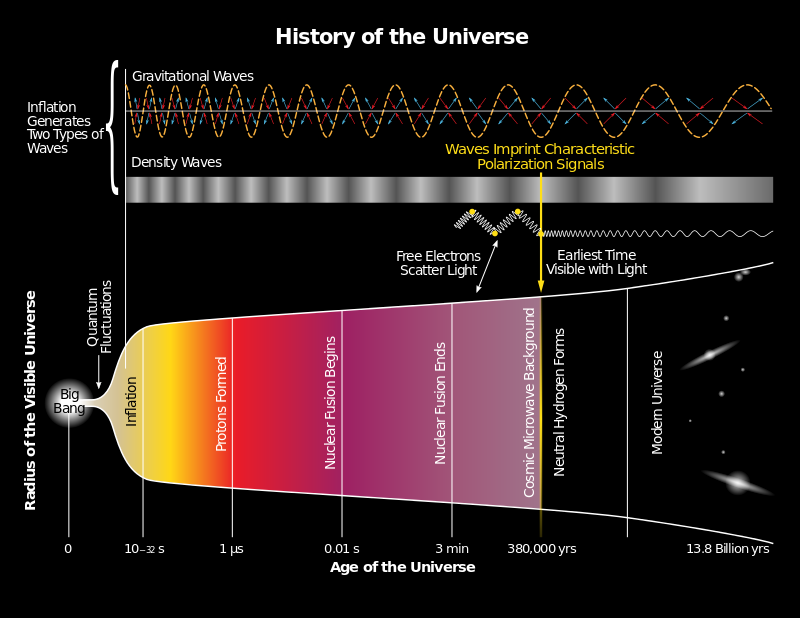String Cosmology

In 1998 astronomer's discovered, through observing distant supernovae, that this expansion is, instead of slowing down, actually accelerating. This surprising discovery can be best explained by introducing the so called dark energy that permeates all of space and can lead to an accelerated expansion of the universe. Describing and understanding this dark energy has been an active research area in string cosmology for over a decade.
Being a UV complete theory of quantum gravity, string theory is also very well suited to address questions about the very early evolution of our universe. It is now widely believed that shortly after the big bang the universe underwent a short and very rapid phase of expansion called inflation.

Such a period of inflation leads to density and gravitational waves that leave an imprint on the cosmic microwave background that we can observe today. Ever improving experiments provide us with a treasure trove of data that we are trying to explain using string theory.